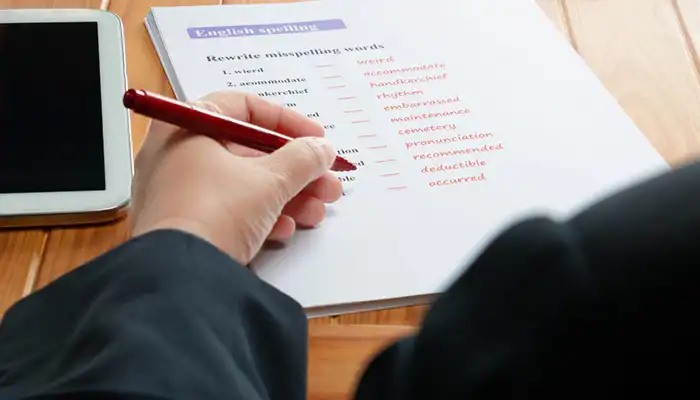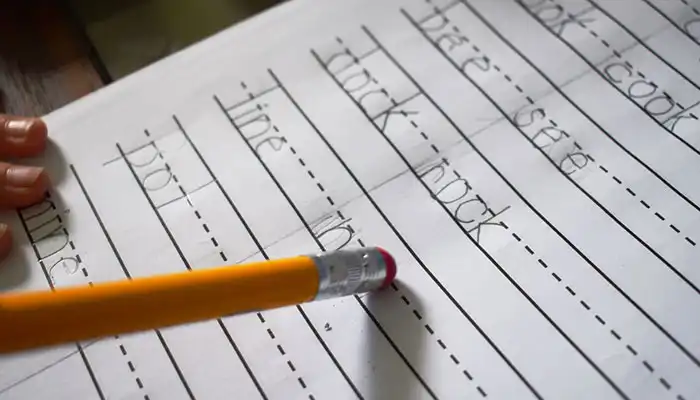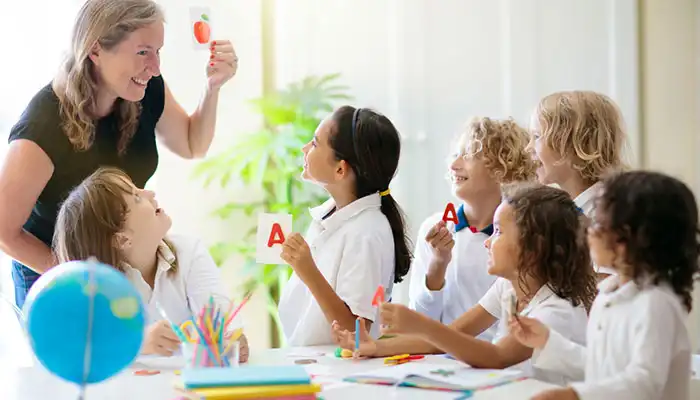Unlocking Early Literacy: Free Rhyming Words Worksheets for 5-6 Year Olds
It’s the holy grail of every parent and early childhood educator to find ways to make learning fun, especially where early literacy skills are concerned. If you are reading this, you are likely looking for printed templates that provide free rhyming words worksheets for the 5-6 year olds in your life, and that will actually help children develop phonemic awareness. Difficult code-cracking, that’s what it can feel like if you’re trying to help young children learn to read without the decoder ring.
Why Rhyming Matters in Early Literacy
Rhyme isn’t just a fun bonus; it’s a fundamental learning tool. When a child picks up a rhyme, it’s not memorisation, in the sense of rote recitation. It’s actually phonological awareness, or the mastery of identifying and manipulating sounds within words. And this is a key predictor of how well the child will learn to decode new words when he or she first begins to read.
How Rhyming Boosts Phonemic Awareness
Let’s unbundle it: if the child is rhyming, she is attending to phonological structure within the word – she becomes aware that ‘cat’ and ‘hat’ share an ending sound, which can in turn help her to anticipate the word’s skeleton structure as she learns new words. One of the reasons why free-rhyming-words worksheets for 5-6 year olds are effective is that they provide a structured yet fun avenue for children to practise these skills regularly.

The Power of Free Rhyming Words Worksheets
Do I really have to prepare worksheets to teach my child about rhyming? Yes, especially if you are looking for an easy, simple and effective way to fit learning into your and your child’s day. They can be used at home, in schools and colleges, as part of homework, and the best part is that you don’t have to pay anything for it!
What Makes Rhyming Worksheets So Effective?
And that’s why worksheets work: through repetition and variety. Hearing/seeing rhyming pairs over and over helps reinforce a skill. And because you can do matching activities, fill-in-the-blank activities and cut-and-paste activities, kids don’t feel like they’re boredly doing the same thing over and over.
Bonus tip: Print out a stack of free photocopiable rhyming words worksheets for five-to-six-year-olds and keep them near your child’s desk or school room. Send your child to the desk for a quick activity between other activities or use one to finish your day of learning with a fun challenge!
Types of Rhyming Words Worksheets for 5-6 Year Olds
You will find a range of rhyming activities worksheets, but let’s start with the basics. There are three types of simple rhyming activities: recognising rhyming words, creating rhyming words, and creating more advanced rhyme pairs. Here’s what you can expect to find.
Matching Rhyming Words
These worksheets have a list of words on the left-hand side and pictures or words on the right, and the child must draw a line down the page to link the rhyming pairs. This worksheet is fantastic for visual learners, who benefit from seeing the information laid out in front of them.
Fill-in-the-Blank Rhyming
For children ready to ramp it up a bit, fill-in-the-blank worksheets ask them to identify their own rhyming word. They may be handed a sentence such as ‘The cat sat on the ___’ and asked to fill in ‘mat’. That not only reinforces rhyming; there’s also vocabulary and sentence structure to practise.
Cut-and-Paste Rhyming Activities
These are practical and ideally suited to the impishly creative: a set of words or pictures might be submitted, which must then be cut out, and the rhyming pairs pasted next to each other. Such activities are also ideal for promoting fine motor skills: another win-win.
Rhyming Word Searches
Word searches are also a nice challenge with some rhyming fun. The young child finds rhyming pairs that are hidden in the letters of a grid. It’s a step up but excellent to keep things interesting and still fun.
How to Use Rhyming Worksheets at Home and in the Classroom
And so, for those of you with children aged five to six years old, you’ve downloaded your free rhyming words worksheet – what now? It all depends on how you use it. Here are some ideas for how you could approach using these worksheets, whether you are a parent or teacher.
Setting Up a Rhyming Routine
Consistency is the key. Make it a routine that your children or students will do a couple of minutes of dots and boxes every day. It can be part of their home early morning routine or classroom warm-up. The repetitions will imbue the learning.
Making It Interactive
Learning doesn’t have to be a one-person show. Pair the children off at the dinner table or sit with your child while she does the worksheet. Talk through the words. Talk about the sounds. Have your child think of other words that rhyme. The talk makes it more fun, and thus a more memorable experience.
Integrating Rhyming Worksheets with Other Literacy Activities
But don’t just rely on worksheets – incorporate them into other types of learning opportunities as well. For example, after finishing a worksheet, read another rhyming book. This ensures that they’re still focusing on rhyming, and that they’re not only learning phonics concepts in isolation, but seeing rhyming applied in language that they recognise. If you’re feeling adventurous, try singing some rhyming songs or playing some rhyming games to make the activity engaging and enjoyable for your little one.
Flashback: Once I was working with a group of 5-year-olds who were just starting to get a handle on embedded rhyme. After doing some metalinguistic worksheet activities, we read The Cat in the Hat, and the kids started calling out rhymes that I hadn’t even been able to suggest in print! Different tools working together.
Adapting Worksheets to Individual Needs
All children are at different stages of learning, and the beauty of free five-to-six-year-old’s rhyming words worksheets is the time they lend themselves to adaption; if they are struggling with one sound pattern, focus on those in your chosen set of worksheets. If the opposite is true, then stretch them with different rhyming patterns and request that they come up with their own rhyming words.
Where to Find High-Quality Free Rhyming Words Worksheets
So where exactly should you look? Well, luckily, the internet has plenty of treasure, but not all resources are equal. Here are some you can trust where you can get good-quality, free rhyming words worksheets for your 5-6 year olds:
Educational Websites
One can access free worksheets from Twinkl, Education.com and Scholastic. These websites have a host of material for different age groups and, because they are developed by teachers, they are often well-structured and aligned to the standards.
Literacy Programs
Look at literacy charities such as Reading Rockets or even PBS Kids which offer free resources to help promote book-related practices such as rhyming with worksheets.
Teacher Blogs and Pinterest
Never underestimate the power of blogging teachers and Pinterest boards. Many provide worksheets and activities for free – and, often, advice on how to use them to best effect.
Pro Tip: Look for worksheets that have three types of activities – matching, fill-in-the-blank and creative. This will keep it varied and fun!
Taking Rhyming to the Next Level: Free Rhyming Words Worksheets for 5-6 Year Olds
Let’s cut to the chase. By now you should have a reasonably strong sense of how free rhyming words worksheets give you the powerful tool of free rhyming words to keep in your child’s literacy arsenal. But how do you make the most of them?
Customising Rhyming Worksheets for Maximum Impact
Every child is different, and there is no one-size-fits-all in learning. The absolutely brilliant and free rhyming words worksheets for 5-6 yr olds are even better adapted to your particular child if they are adapted to his or her specific needs.

Adjusting Difficulty Levels
After all, some kids will breeze through such activity sheets, while others might find them a bit tricky – just keep the difficulty level at whatever your kid is ready and willing for. Try some simple rhyming pairs (‘cat’ and ‘hat’, for instance) before moving on to more complex words as your child starts getting the hang of it.
How to Gauge Your Child’s Level
Watch yourself as you do the worksheets: Are you doing them too quickly? Throw in some harder words. Even out the tempo and have them choose rhyming words. Children should think about their answers and try as hard as they can. Or do they seem discouraged? Stick to the basics here and make sure to give lots of praise.
Personalising Content for Engagement
The same material tends to be more accessible if it’s personalised – in this case, if it contains words important to your child. Does he enjoy animals? Does she like to rhyme ‘dog’ and ‘frog’? ‘Cat’ and ‘bat’? Tap into this while you can. It will make the worksheet more fun to do, but also easier to remember.
Story Example: We work a lot with a dino-obsessed student. We created some modified free rhyming words worksheets for 5-6 year-olds centred around words such as T-rex and flex or dino and rhino. Rhyming became very fun for him!
Integrating Rhyming into Daily Routines
Kids don’t have to spell out a word and snag a rhyming word from a worksheet. You can weave rhyming into everyday moments to make learning seamless and fun.
Rhyming During Playtime
Make even playtime educational – rhyming type Play ‘I spy’ with a rhyming twist by saying ‘I spy something that rhymes with “bed”.
Using Rhyming in Conversations
Make rhyming part of your daily interactions. If you’re trying to get your kid to achieve some mundane task – ‘Let’s put on the shoes!’ – turn it into a rhyme: ‘Let’s choose some shoes!’ This practice is the stealthiest way to bolster your child’s learning experience without making it feel like a lesson.
Rhyming at Bedtime
For example, reading bedtime stories is a way for parents to build on rhyming: read books with a strong rhyming pattern, and get your child to predict the next rhyming word, which will help them both to relax, and enhance their literacy before nodding off.
Addressing Common Challenges with Rhyming Worksheets
Let’s start by getting these fears out of the way. Not every child is going to want to do rhyming worksheets. Here’s how to deal with the common barriers to success.
My Child Finds Rhyming Boring
Now if your son says it’s boring, try adding a little pizzazz: use a worksheet and alternate it with rhyming songs or rhyming videos.
My Child Can’t Hear the Rhymes
For some children, rhymes will prove difficult to hear. Start therefore by introducing rhymes that are very clear and very unambiguous; draw their attention to the sounds by pointing to the counters on ‘toad’ and hopping to ‘road’, or by clapping or tapping out the syllables to ‘feel’ the rhyme.
My Child Mixes Up Rhyming Words
Mis-hearings are frequent, even with words that have near-rhyme (but not exact – so ‘sit’ and ‘sick’ for example). Give them a second check with the ‘Rhyming vs. Not Rhyming’ sorting exercise. Let your child sort more words into the correct categories. This works well visually and convinces them by using the fingers to put the sound into the rhyming category or not.
FAQs: Free Rhyming Words Worksheets for 5-6 Year Olds
How much should my child practise rhyming? Be consistent. Five minutes a day, every day is ideal, but even two to three times per week will do. You want to maintain regular exposure to rhyming words so that children can continue to build on their progress.
Does Rhyming Promote Other Facets of Literacy? Yes. It’s a stepping-stone for broader literacy skills: spelling, reading fluency, vocabulary. It boosts phonemic awareness (knowing a word is composed of individual speech sounds) – a core concept for pronounced word-decoding, or rubbing our mental hands together linguistically.
What if My Child Hates Worksheets? Not every child will enjoy worksheets, and there’s no rules saying it has to be the centre of their activities. Use worksheets as an complement rather than a main activity. Turn rhyming into games, songs or stories.
Exploring More Resources: Beyond Rhyming Worksheets
There are many literacy tools beyond rhyming that you can use once your child masters rhyming.
Phonics Games and Apps
There are plenty of phonics games and apps that make learning to read fun, for example activities involving rhyming, which are fine provided that they do not impede conventional literacy learning.
Storytelling Activities
Help your child to invent her own odd rhymes that would fit in the text. That will help her to focus on the rhyming words, but also to develop inventiveness and self-confidence, as well as to engage her attention.
Group Activities
If your child is in a classroom or has siblings, activities that involve groups – such as a rhyming scavenger hunt or rhyming word bingo – can make learning a social experience. Children benefit from having to interact with others while learning, and these options provide fun ways to do so.
Keeping the Momentum Going: Continuous Learning with Rhyming Words Worksheets
Now all you need to do is keep those thoughts flowing. Ongoing use of free 5-6 years olds rhyming words worksheets will help your child or pupils’ literacy stay on-track.
Set Goals and Celebrate Achievements
Set reachable short-term goals (‘This week we’ll learn five pairs of rhyming words’). Throw a party for your child after each step is accomplished – sticker on the chart, high-five, special treat (reinforcement works).
Rotate Activities to Avoid Burnout
Create enough variety that the child doesn’t get bored too soon While it’s important to have a plan or list for the day – what’s coming up, and when – you can also throw in new activities to keep things interesting. Worksheets one day, a rhyming song or game the next one.
Stay Involved and Engaged
Help them by staying involved. Encouragement from parents and teachers (and siblings and friends) will help keep them going: ask questions, take their lead, and make it a joint project.



